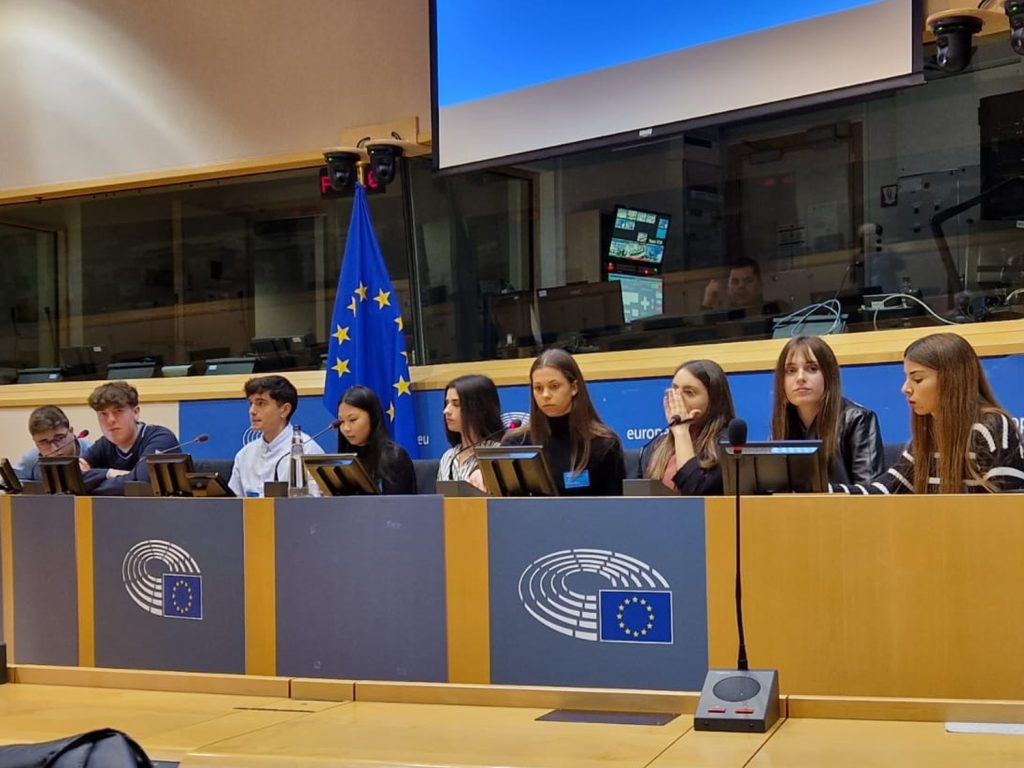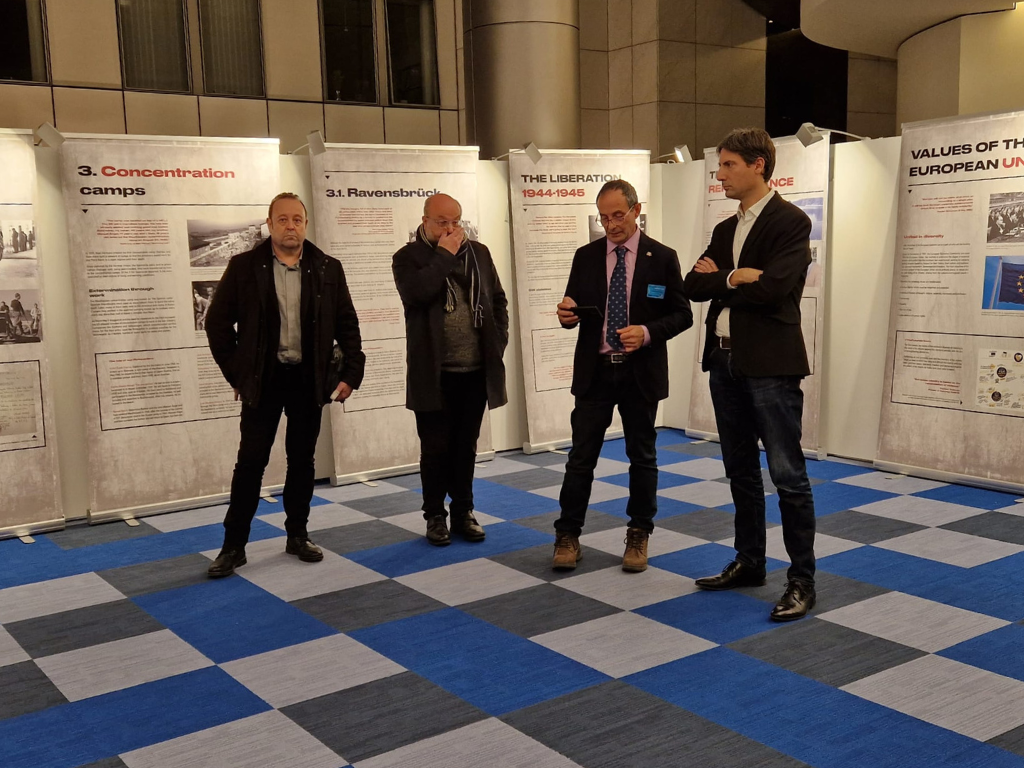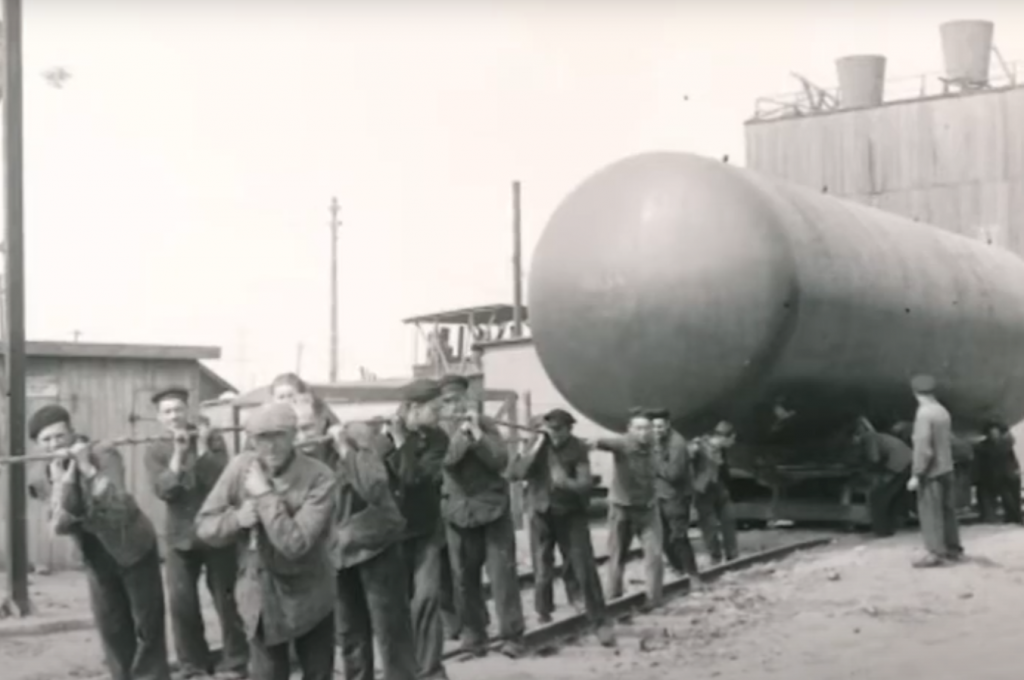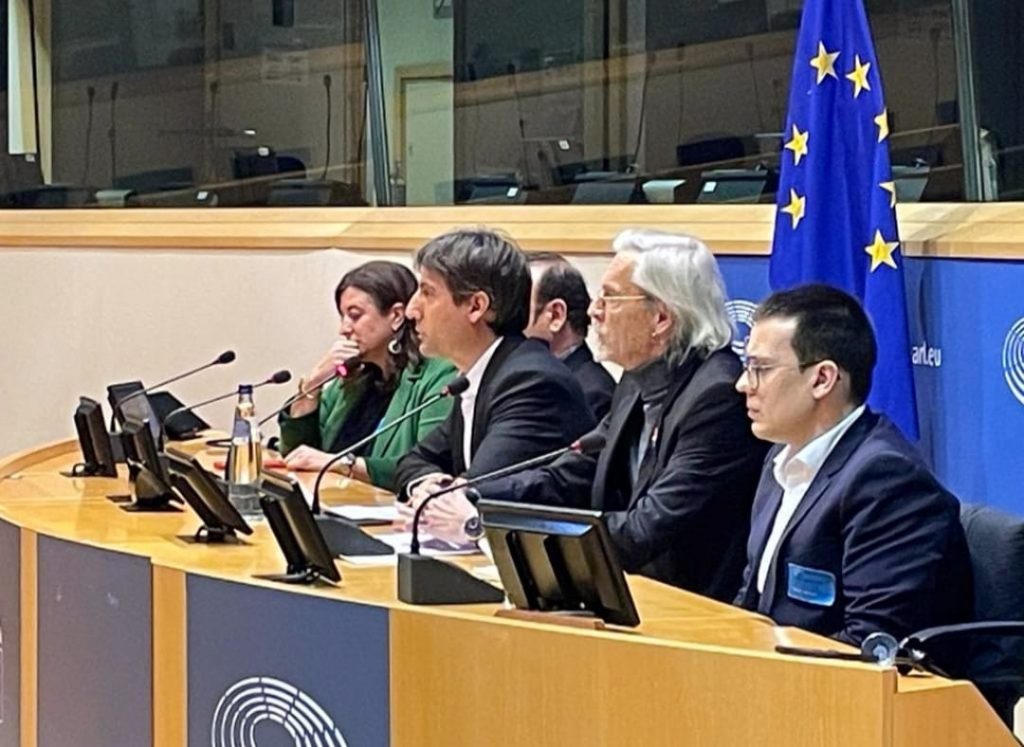07/02/2023
The story of the Spanish workers forced by Nazi Germany reaches the heart of Europe
The project led by the URV takes the exhibition and the documentary about the Rotspanier to Brussels. Students from the secondary school in Alcover present the work they have done on memory recovery for the project’s teaching unit.

The project led by the URV takes the exhibition and the documentary about the Rotspanier to Brussels. Students from the secondary school in Alcover present the work they have done on memory recovery for the project’s teaching unit.
Getting to know Europe’s past is key to ensuring a peaceful future. For this reason, the project funded by the Europe for Citizens programme “Lessons for the present: Rotspanier, forced labourers in World War II. The European (dis) memory of anti-Fascism” reached the European Parliament yesterday. The project is led by the URV’s Centre for Studies on Social Conflicts (CECOS) and tells the story of the thousands of Spaniards who were forced to work for the regimes of Pétain and Hitler during World War II. The day was organized by the parliamentary group of the Greens/European Free Alliance and served to recover historical memory.
The research and dissemination project, which emphasizes the European values of peace, democracy and freedom, involves historians and European organisations for recovering historical memory, which have developed a variety of teaching materials – a website, various exhibitions and a teaching unit for secondary schools – that were unveiled at the event in the EU parliament on Monday.
Forced to serve the German and French regimes
As part of the round table, Jaume Camps, a lecturer at the URV, explained the case of the Catalans who were used as forced laborers. They were among the more than 40,000 Civil War veterans from across the state and former international brigadiers who had gone into exile in France and were there when it was occupied by Nazi Germany in 1940. They were the Rotspanier, the nickname the Nazis gave to the Spanish Reds who were sent to labour and concentration camps across Europe to serve the German war economy. In fact, they worked for the Third Reich and for the Pétain collaborationist regime in France, too.
The story of millions of these people is also told in the exhibition that was inaugurated in the European Parliament and has already toured several municipalities in Catalonia, Spain, Germany and France. The documentary Rotspanier, in which CECOS had played an active part, was also screened. It was prepared by the journalist Rafael Guerrero, who looks back on the odyssey of the Rotspanier in the internment camps during World War II, using archive images, testimonies and historical analysis.

Outreach to secondary schools
Also involved in the documentary research and piecing together the life story of forced workers were students from the Institut Fonts del Glorieta, the secondary school in Alcover (Tarragona), nine of whom travelled to the European capital to tell the story of Àngel Veiga López. “His son got in touch and told us that his father had died in the concentration camp at Mauthausen (Austria), where he had been sent on the first train of deported Spaniards after being in the Algerian camp,” explains Jaume Camps, who supervised the students’ work. They interviewed the son, who had photos and drawings of the Algerian camp, and searched for information in the archives documenting the victims of the Holocaust and in the Departmental Archive of the Eastern Pyrenees, until they managed to reconstruct his life.
At the event in Brussels, the students stressed the importance of learning about the past through projects such as this one.
One of the partners of the project, the group from Eleuterio Quintanilla d’Asturies, has drawn up a teaching unit to work on this period of European history in school classrooms. Using materials prepared by the researchers themselves, they give talks in secondary schools, supervise the work done on the Rotspanier by the students from several schools in Gijón and Oviedo, and organize events in honour of the victims of Nazism.

Also taking part in yesterday’s round table at the European Parliament were Hugues Vigouroux, vice-president of Memory of Republican Exile (Mere 29), partner of the project; the MEP for ERC in the Greens/ELE group Jordi Solé; Jordi Diloli, vice-rector for Social Commitment and Sustainability, and Idoya Martínez, lecturer in History and member of the Eleuterio Quintanilla Group. The exhibition in Parliament was inaugurated by Jordi Solé and Urbano Lorenzo, vice-rector for Scientific Policy and Interdisciplinary Projects.

The project has also reached Madrid, where several members of the Centre for Studies on Social Conflicts of the URV (CECOS) participated in the meeting of state memorial organizations during the approval of the Democratic Memory Law in the Senate, in October 2022.
Information regarding the partners and the project, as well as contact addresses can be consulted on the Rotspanier website.
